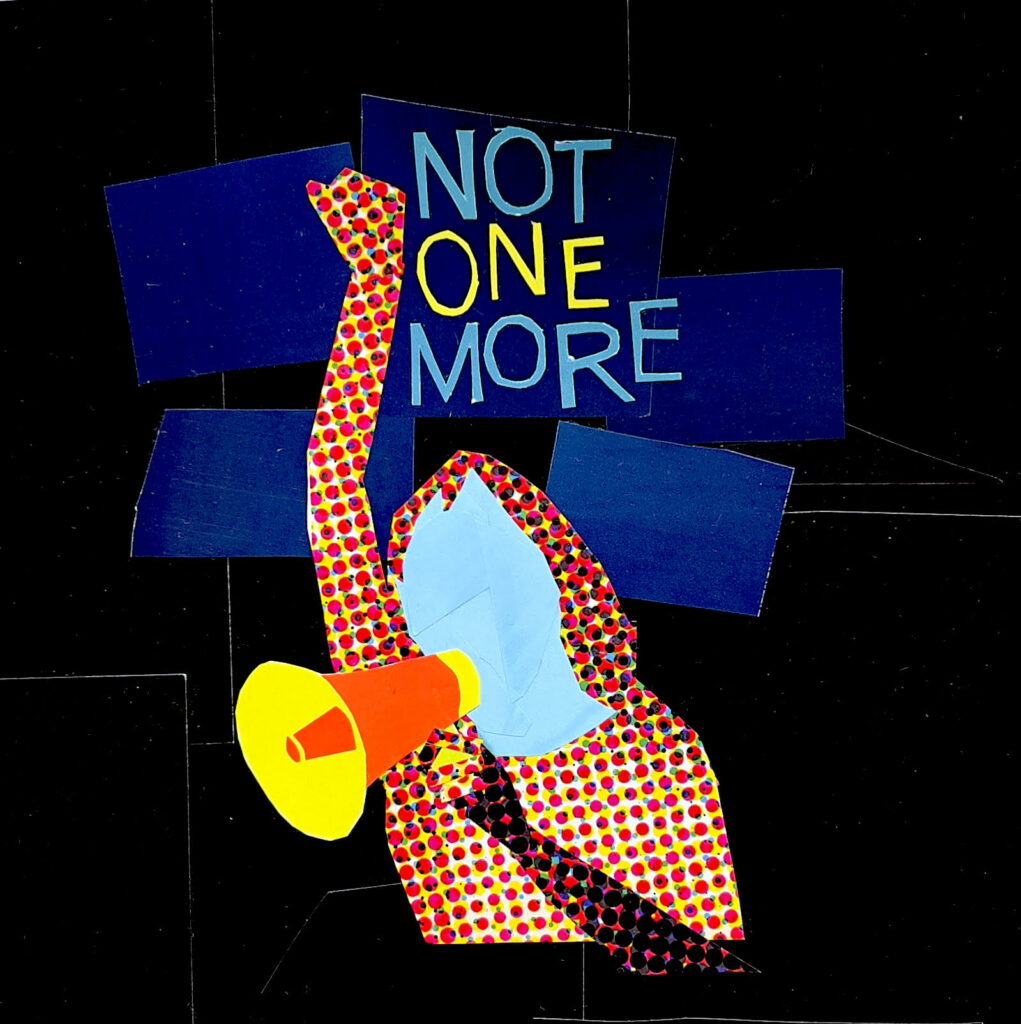I have never thought of myself as an organizer. Although I’ve worked for March for Our Lives for about a year now, my job as a legal associate was always about activism and education, not on-the-ground organizing. My job as a legal associate is mainly about interviewing survivors of gun violence and writing their stories in legal briefs. I’ve talked with survivors as young as 6 who come from Oxford, Sandy Hook, Highland Park, Uvalde, and countless other places where lives have been irrevocably changed by the pull of a trigger. But when the Covenant school shooting happened in Nashville, it felt personal in a way it normally doesn’t. I grew up 15 minutes away from the site of the shooting. My mom works at a school 20 minutes away, and my brother is still in school. I was desperate to do something about what just happened, and when my coworker and fellow Vanderbilt student, Ezri Tyler, reached out to me and asked if I would organize a city-wide walk out with her, I immediately said yes.
I had no idea what organizing would entail, or the events that would come from our walk-out. We spent a week reaching out to everyone we knew and cold-calling others to get involved. We used our networks of friends to find students at other Nashville colleges who could spearhead the marches from their schools. A lot of the event was using the connections that we already had, with local and school organizations, friends, professors, and more, to build a passionate network of people who would show up to the event and get others to do the same.

Through this network, we started to form a coalition of local organizations, like the Equity Alliance, the Tennessee Immigrant & Refugee Rights Coalition, Planned Parenthood of Tennessee, Inclusion Tennessee, and many more, who helped us with the event.
On Monday, April 3rd, at 10:13AM, the exact moment of the start of the shooting one week before, students left their schools en masse. Over 1,000 students from Vanderbilt alone walked to the state capitol. All told, our crowd numbered over 7,000.
This was just the beginning. The network that we formed for the walk-out turned into a coalition for the Tennessee Three, a group of state legislators threatened with expulsion over their participation in gun protests. We were involved in 17 events over the next three weeks, leading a student occupation of the rotunda of the capitol building during the expulsion hearings, coordinating reinstatement hearings after two lawmakers were kicked out of the House, and joining survivor-led actions by groups like the Akilah Dasilva Foundation and Mothers Over Murder. We not only were in coalition with these groups, we were in community.
These past few weeks have changed my life. They have been hard, but they have been powerful. My favorite part of the experience was empowering other first-time organizers, especially high schoolers. We have a responsibility to organize, but we also have power.
“Advocacy does not stem from a want to make change, advocacy stems from a need to make change,” said Ava Buxton, a senior at Hume Fogg High. “There is no high school student who wants to have to stand inside of the state capital for 10 hours and scream for the legislature to protect them from being shot inside of a school to feel safe in a classroom. We do that because we see too much death to be idle in the midst of apathetic, bigoted legislatures. We do it because we continue to witness the impact of what happens when we put our feet down and refuse to resign ourselves to complacency.”
You might not think of yourself as an organizer either. But nobody is born one, and nobody does it alone. If you want to make a difference about a cause you care about, the first step is finding your network. When Ezri and I reached out to everyone we knew about the shootings, we spread our passion to others, making our collective stronger than any one person.
Once you’ve gotten the word out, you’ll be shocked by how many other people care about it too, whatever the cause. All of the organizations we coordinated with — built our community with — have been in the fight against gun violence for years, and had crucial insight and connections to contribute to our movement.
Anybody can care about something — and anybody can make a difference too. It won’t be easy, and at times you will feel uncertain. But together, we can do the impossible.



